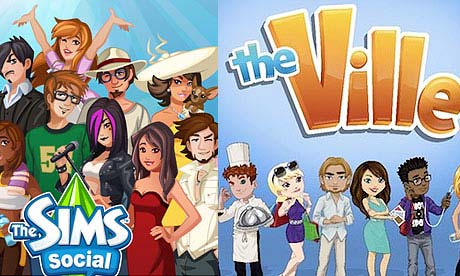Zynga recently announced that they are asking a judge to strike parts of EA’s copyright infringement lawsuit relating to The Sims Social and The Ville, answering EA’s complaint and demanding a jury trial. They also filed a counterclaim against EA, alleging breach of contract and violation of California law.
“Today we responded to EA’s claims which we believe have no merit. We also filed a counterclaim which addresses actions by EA we believe to be anti-competitive and unlawful business practices, including legal threats and demands for no-hire agreements,” said Reggie Davis, Zynga general counsel in a statement. “We look forward to getting back to focusing all our efforts on delighting our players.”
“This is a predictable subterfuge aimed at diverting attention from Zynga’s persistent plagiarism of other artists and studios,” said EA spokesman John Reseburg in response. “Zynga would be better served trying to hold onto the shrinking number of employees they’ve got, rather than suing to acquire more.”
Zynga says parts of the EA lawsuit serve no purpose and should be struck, often speaking in highly critical terms of EA. “In sharp contrast to the confined inquiry that single claim requires, EA’s Complaint is an unrestrained ramble of immaterial, inflammatory, and prejudicial allegations that have no bearing on the issue at hand. These allegations are so patently irrelevant to the case that they appear geared more towards inciting the press coverage they generated than contributing to legal analysis. Zynga therefore moves to strike them.”

The suit itself names several titles, including some of Zynga’s, that the company asserts as the base of game The Sims Social, ridiculing EA’s game in the process. “EA’s lawsuit ultimately rests on the implausible assumption that Zynga would launch a ‘copy’ of a game that had failed months before Zynga released its own game. By the time Zynga launched The Ville, the user base for EA’s The Sims Social had plummeted, and Zynga is informed and believes that EA already had relegated the game to its India Studio where EA games in decline are sent to be inexpensively maintained and ultimately discontinued.”
Zynga also asserted that EA violated California law concerning hiring and brought counterclaim, saying, “EA knows that none of the former EA executives it names in its lawsuit – John Schappert, Jeff Karp, and Barry Cottle – transmitted any EA confidential information to Zynga because EA itself was involved in, and approved of, the exhaustive measures undertaken to ensure that did not happen.”
“The truth is that despite years of trying to compete, and spending more than a billion dollars on acquisitions, EA has not been able to successfully compete in the social gaming space and was losing talent, particularly to social gaming leader Zynga. Desperate to stem this exodus, EA undertook an anti-competitive and unlawful scheme to stop Zynga from hiring its employees and to restrain the mobility of EA employees in violation of the spirit of the antitrust laws and California public policy. EA sought, by threat of objectively and subjectively baseless sham litigation, what it could never lawfully obtain from Zynga – a no-hire agreement that would bar Zynga’s hiring of EA employees,” concluded Zynga.

